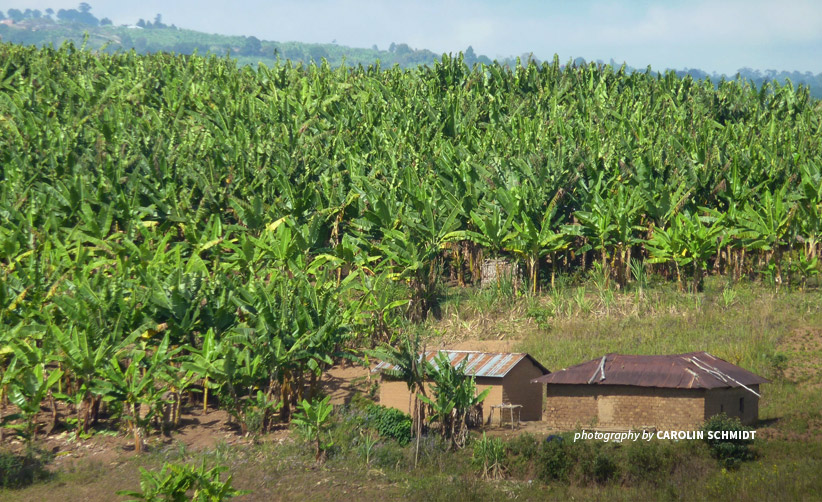Conservation finance creates opportunities for biodiversity protection

Smallholder farmers make up more than 60 percent of sub-Saharan Africa’s total population, according to a 2019 McKinsey & Company report. These small-scale producers own less than five hectares each, but collectively hold most of the arable land in the region. Investment in this sector will undoubtedly increase productivity, which experts signal as the “biggest growth driver” and the answer to food insecurity.
Despite being the lifeblood of community development and rural economies, smallholder farmers struggle to boost productivity. With limited financing options and poor access to both markets and high-quality inputs, yields and prices remain low. Bankruptcy for agricultural communities does not take the form of a pile of bills, but as degraded ecosystems that lead to drought or infestations that continue to destroy natural systems. The global impacts of climate change hit these vulnerable communities even harder.
In Kilombero, Southern Tanzania — the country’s breadbasket and a prime biodiversity area — African Wildlife Foundation is investing in agriculture that empowers rural farmers and aligns with protecting the ecological systems that food production depends on. This fertile landscape is critical in Tanzania’s protected area network, linking Selous Game Reserve and Udzungwa National Park, which is part of the southern elephant corridor. Agricultural expansion in recent years has converted ancient migratory routes into farmland — elephants cross through these plantations and smallholder farms on a regular basis, destroying the crop along the way and risking retaliation from farmers.
To enable the safe passage of herds through this landscape and reduce conflict with people, AWF provided smallholder farmers with drought-resistant seedlings and sustainable agriculture training in exchange for their commitment to protect the elephant corridor. These farmers are part of the outgrower business model supplying Illovo Sugar, operator and majority shareholder of Kilombero Sugar Company Limited, with up to 60 percent of the cane processed at its factories in the area. Since adopting climate-smart land and water management practices, farmers increased their production and improved the sugar content of their cane. Importantly, the interventions have served to reduce demand for cropland in the biodiversity-rich landscape, thereby helping to maintain wildlife habitats.
Diverse incentives for communities to coexist with wildlife
Traditional agro-economic models tend to accrue benefits to outsiders rather than the farmers working the land to produce food and harvest products. Yet they take on the burden of maintaining the ecological systems and in many cases, protecting wildlife species in their natural habitats. AWF has long recognized the role of local communities in conservation and mobilized USD $7 million to invest in nine enterprises in the tourism and agriculture sectors across Eastern and Southern Africa.
AWF-supported conservation enterprises reshape traditional economic models by creating empowerment among communities to sustain themselves and to invest in themselves. Successful conservation enterprises generate long-term, localized benefits for communities who agree to protect forests or wetlands as well as wildlife habitat and wildlife corridors. Not only does this approach lift people out of poverty, it also helps foster a mindset for biodiversity protection.
For communities living near the Volcanoes National Park in Rwanda, mountain gorilla tourism has developed a positive relationship with wildlife conservation by building a positive benefit-sharing mechanism through the community-owned Sabyinyo Silverback Lodge. In this case, AWF’s innovative approach ensured that ownership of the core asset remains with people living closest to mountain gorilla habitat. Since the lodge was established in 2007, the community trust Sabyinyo Community Livelihood Association (or SACOLA) has used lodge revenues to initiate socio-economic projects improving local healthcare and education. SACOLA represents the transformation of wildlife tourism businesses into drivers of rural economic development, with many members now able to finance other agricultural businesses using profits from the lodge. Over the last three years, the association has supported over 60,000 beneficiaries, more than half of whom are women.
The collapse of the tourism industry due to the COVID-19 pandemic underscores that we need to accelerate the diversification of local economic options for communities and invest in other sectors that link conservation and development. But as we respond to the economic crisis, we cannot perpetuate the current imbalance between nature and human wellbeing. Perhaps this is our impetus to reinvigorate the job market by creating opportunities to help restore and protect biodiversity while reducing our exposure to risks such as climate change and global pandemics.
AWF embraces business as an agent for change in the landscapes and countries where we work. Our years of experience working with local communities demonstrate that how impact investing and microfinance can be used to stimulate conservation enterprises and change mindsets. Studies show that Africa’s growth is built on the proliferation of micro, small and medium-sized enterprises rather than the labor-intensive large-scale manufacturing typical of Asian economies. Already, the impact investment sector has witnessed significant growth in recent years with a significant footprint in Eastern Africa. In 2015, the Global Impact Investing Network reported USD $9.3 billion in impact capital disbursed in East Africa through 1,000 deals.
As our partnership with Illovo Sugar in Kilombero shows, business can be a legitimate and valued actor committed to delivering a conservation outcome. Impact investing can open the doors for finance to support the right kinds of businesses in African landscapes with high conservation value. Growing resilient local economies in these critical areas will empower communities and create long-term incentives for the conservation of wildlife and wild lands.